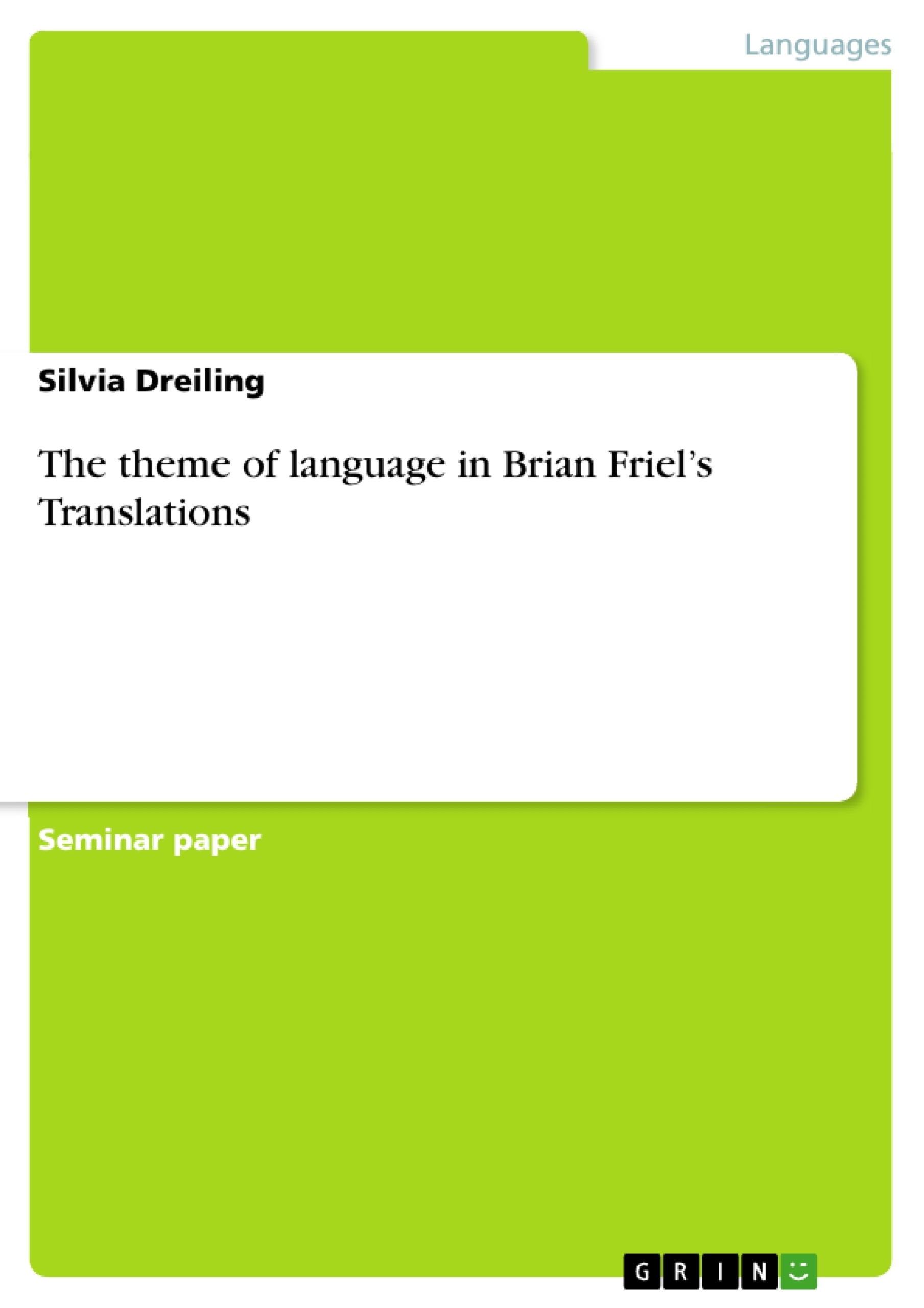The Irish history is a history of disempowerment. The invasion by the English triggered a decline of Irish history and language, which resulted in a rise of English power. However, the English have not been able to gain full control over Ireland, and the Irish defended their land not only physically but also verbally through literature. This struggle for power is represented in Brian Friel’s Translations. The play takes place in 1833, a time of the first Ordnance Survey, and emergence of the new National Schools; the action happens at a hedge school in a small Irish speaking community, where no English is taught or thought to be important.
Nevertheless, throughout the story the English language becomes more and more dominant as English soldiers arrive, the mapping of Ireland becomes central, or the national schools were simply responding to the needs of the times. Language plays not only a significant role in the story but is also a powerful element. In Translations, a power shift is represented through the change in the use of and the attitude towards language as well as through the process of language substitution. This paper discusses these changes in relation to the element of power within Ireland.
Table of Contents
- Introduction
- Change of language use and power shift
- Irish as the dominant language
- Manus's multilingualism and power
- Owen's power of translation
- Maire's desire to learn English
- Change of attitudes towards language and power shift
- Doalty's Irish pride and fear
- Hugh's patriotism and eventual acceptance of English
- Captain Lancey's English dominance
- Shifting importance of the English language
- Conclusion
Objectives and Key Themes
This paper examines the impact of language on power dynamics in Brian Friel's "Translations," specifically through the changing language use and attitudes of various characters. It explores how the shift from Irish to English as the dominant language in the play reflects the broader historical context of English colonialism in Ireland.
- The role of language in shaping identity and power
- The consequences of language change and cultural assimilation
- The conflict between Irish and English cultures
- The power of translation and its potential for manipulation
- The struggle for individual and national agency in a changing world
Chapter Summaries
The introduction establishes the historical context of English colonialism in Ireland and its impact on the Irish language and culture. It highlights the central role of language in Brian Friel's "Translations" as a reflection of power dynamics.
The chapter on "Change of language use and power shift" analyzes how the shift from Irish to English is reflected in the language use of various characters. It examines how the characters' ability to speak multiple languages, including English, impacts their social standing and power.
The chapter on "Change of attitudes towards language and power shift" delves into the evolving attitudes of characters toward language. It explores how their initial pride in Irish culture and language transforms into a fear of English dominance as the play progresses.
Keywords
The main keywords of this text are: Brian Friel, Translations, Irish language, English language, power shift, colonialism, cultural assimilation, identity, translation, manipulation, individual agency, national agency.
Frequently Asked Questions
What is Brian Friel's play "Translations" about?
Set in 1833 Ireland, the play depicts the British Ordnance Survey and the systematic renaming of Irish places into English, reflecting the cultural and power shift of the time.
How is language used as a tool of power in the play?
The substitution of Irish place names with English ones represents the colonial disempowerment of the Irish people and the rise of British administrative control.
Who is the character Owen and what is his role?
Owen acts as a translator for the British soldiers, illustrating the "power of translation" and the moral complexities of cultural mediation.
What does Maire's desire to learn English represent?
It represents the pragmatic need for survival and the pull of the "modern" world, even at the cost of losing one's native linguistic identity.
What is a "hedge school"?
A hedge school was a small, local Irish school where subjects like Latin, Greek, and Irish were taught, often outside the official British educational system.
- Quote paper
- Silvia Dreiling (Author), 2015, The theme of language in Brian Friel’s Translations, Munich, GRIN Verlag, https://www.grin.com/document/496845



